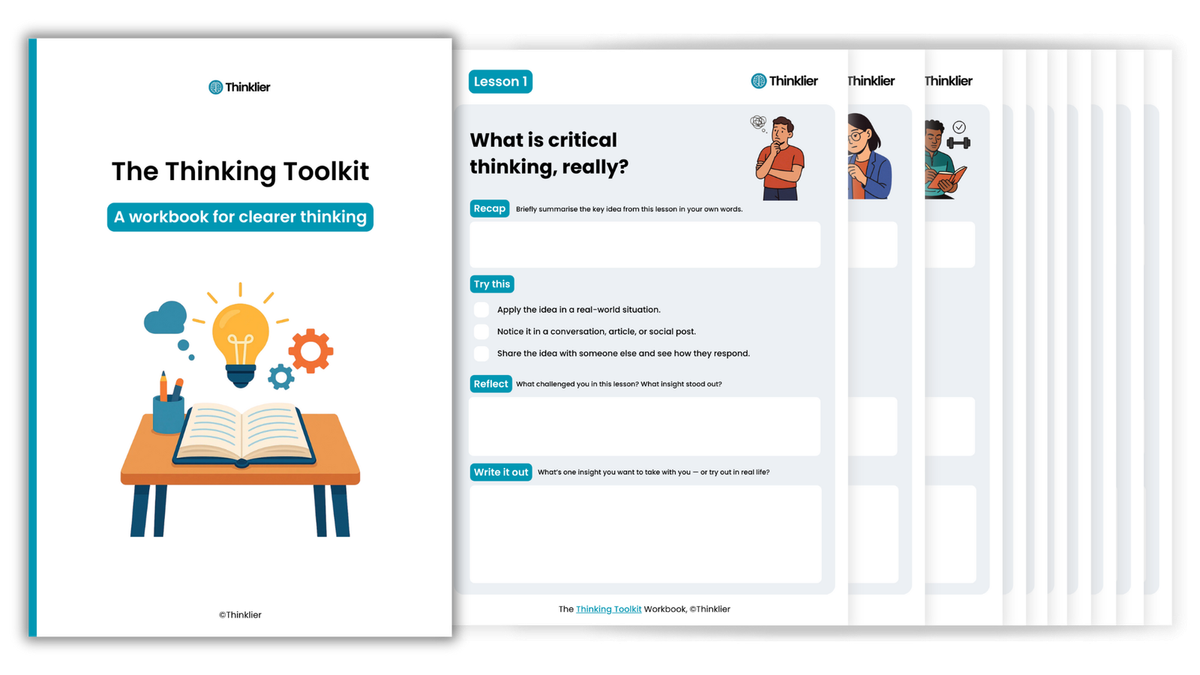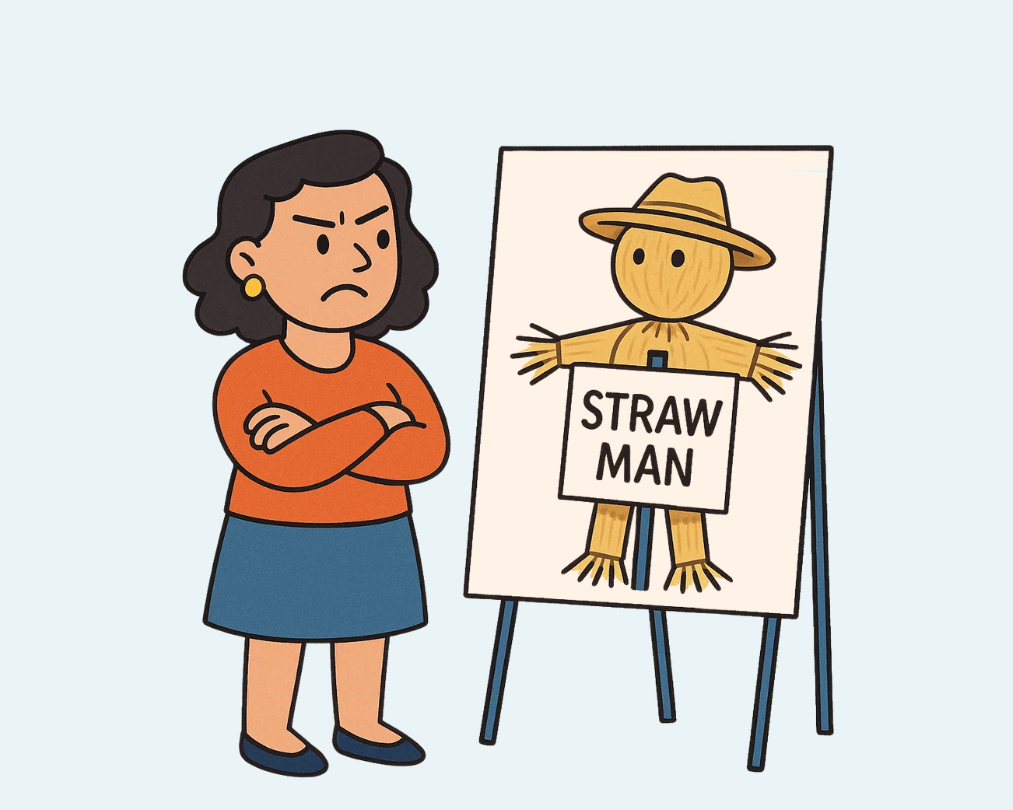Lesson 2: Why smart people fall for dumb ideas
From The Thinking Toolkit
Being clever doesn’t protect you from bad ideas — it can make you more susceptible. This lesson shows how intelligence can backfire and how to avoid the trap.
It’s tempting to think that intelligence is a kind of mental armour — that smart people are better at spotting nonsense, resisting manipulation, or staying rational.
But it’s not that simple.
In fact, some of the most intelligent people in history have fallen for terrible ideas — from cults and conspiracy theories to dangerous ideologies and obvious hoaxes.
Why?
Because being smart doesn’t mean being right. And it definitely doesn’t mean being immune to bad thinking.
Intelligence ≠ immunity
mart people tend to have stronger cognitive tools — they’re better at arguing, remembering, and rationalising.
But that’s a double-edged sword.
When a belief feels emotionally right or tied to identity, intelligence doesn’t help you challenge it — it helps you defend it.
Smart people are often better at justifying their beliefs than questioning them. They marshal evidence, anticipate counterarguments, and then explain them away.
In other words: intelligence can make our biases more convincing.
The role of identity
We don’t just think to find truth — we think to protect identity, status, and belonging.
So if a belief is wrapped up with who we are, or who we want to be seen as, our minds will defend it fiercely — even if it’s false. And the smarter we are, the more mental gymnastics we can perform to keep it safe.
This is why critical thinking isn’t just about brainpower. It’s about honesty. Curiosity and the willingness to be wrong.
Smart ≠ wise
There’s a difference between intelligence and wisdom.
- Intelligence is the ability to work with information — to analyse, combine, and reshape it.
- Wisdom is the ability to see clearly, to know what matters, and to admit when you’re off course.
Critical thinking belongs more to wisdom than to IQ. It’s not just about how you think — it’s about your relationship to your own mind.
Mini challenge: question your cleverness
Think of a time when you were absolutely sure about something, and later turned out to be wrong.
Ask yourself:
- What made you feel so certain at the time?
- Did being clever help you question it, or help you defend it?
- How might you spot that pattern earlier next time?
In short
Intelligence doesn’t make you immune to bad thinking — it can actually make your biases more sophisticated.
Smart people are often great at defending beliefs, not questioning them, especially when those beliefs are tied to identity or ego.
That’s why critical thinking isn’t just about brainpower. It’s about honesty, humility, and the willingness to be wrong.
Don’t forget the companion workbook
To get the most out of this lesson, download the workbook — it gives you space to reflect and one simple habit to build.

Next up







